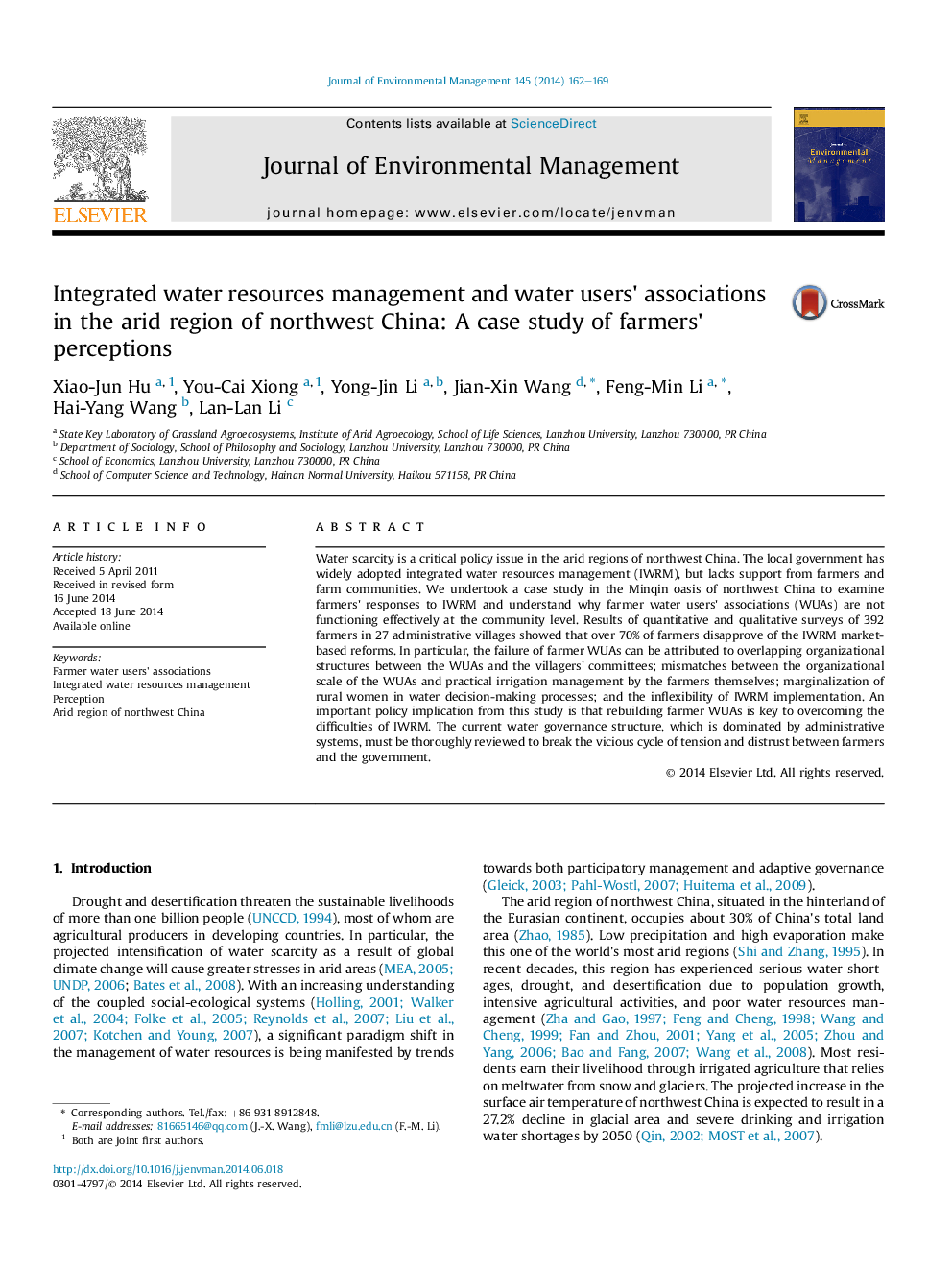| Article ID | Journal | Published Year | Pages | File Type |
|---|---|---|---|---|
| 7483482 | Journal of Environmental Management | 2014 | 8 Pages |
Abstract
Water scarcity is a critical policy issue in the arid regions of northwest China. The local government has widely adopted integrated water resources management (IWRM), but lacks support from farmers and farm communities. We undertook a case study in the Minqin oasis of northwest China to examine farmers' responses to IWRM and understand why farmer water users' associations (WUAs) are not functioning effectively at the community level. Results of quantitative and qualitative surveys of 392 farmers in 27 administrative villages showed that over 70% of farmers disapprove of the IWRM market-based reforms. In particular, the failure of farmer WUAs can be attributed to overlapping organizational structures between the WUAs and the villagers' committees; mismatches between the organizational scale of the WUAs and practical irrigation management by the farmers themselves; marginalization of rural women in water decision-making processes; and the inflexibility of IWRM implementation. An important policy implication from this study is that rebuilding farmer WUAs is key to overcoming the difficulties of IWRM. The current water governance structure, which is dominated by administrative systems, must be thoroughly reviewed to break the vicious cycle of tension and distrust between farmers and the government.
Related Topics
Physical Sciences and Engineering
Energy
Renewable Energy, Sustainability and the Environment
Authors
Xiao-Jun Hu, You-Cai Xiong, Yong-Jin Li, Jian-Xin Wang, Feng-Min Li, Hai-Yang Wang, Lan-Lan Li,
